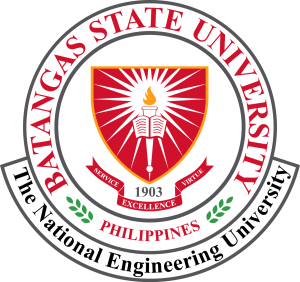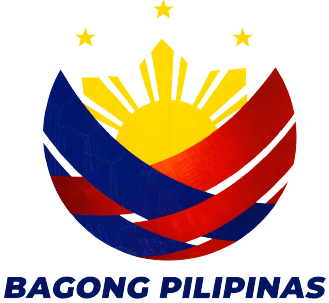Admission Requirements and Procedures
Admission Requirements and Procedures Basic Education Undergraduates Graduate School Enrolment Procedure for Incoming Freshmen FAQs Downloadable Forms Admission Requirements and Procedures Basic Education Undergraduates Graduate School Enrolment Procedure for Incoming Freshmen FAQs Downloadable Forms Home / Page Regular Admission Policies BASIC EDUCATION Batangas State University Integrated School is now accepting applicants for Kindergarten, Elementary transferees, and incoming Grade 7 students. Join a community that nurtures future achievers! UNDERGRADUATES Start your Red Spartan journey with us! Batangas State University – The National Engineering University is now open for applications from incoming college freshmen,returnees, and transferees. Be part of a future built on excellence! GRADUATE SCHOOL Advance your journey with us — applications are now open for Graduate School, the College of Law, and the College of Medicine at Batangas State University.
Informatics and Computing Sciences
Home / Page Informatics and Computing Sciences Batangas State University, The National Engineering University (BatStateU The NEU), offers industry-driven graduate and undergraduate programs in Information Technology Education (ITE) with specializations in artificial intelligence, machine learning, deep learning, and cybersecurity. BatStateU The NEU’s Bachelor of Science in Computer Science program is accredited by the Computing Accreditation Commission of ABET (https://www.abet.org), meeting both the General Criteria and the Program Criteria for Computer Science and similarly named computing programs. Furthermore, the Bachelor of Science in Information Technology program at the Alangilan Campus is also accredited by the Computing Accreditation Commission of ABET (https://www.abet.org), adhering to the General Criteria and Program Criteria for Information Technology and similarly named computing programs. Programs Offered Master of Science in Computer Science Master of Science in Information Technology Master of Science in Data Science Master in Information Technology Bachelor of Science in Computer Science Bachelor of Science in Information Technology BatStateU-Alangilan Graduate ProgramsMaster of Science in Computer ScienceMaster in Information TechnologyMaster of Science in Data Science and Analytics Undergraduate ProgramsBachelor of Science in Computer ScienceBachelor of Science in Information Technology BatStateU-Balayan Undergraduate Programs Bachelor of Science in Information Technology BatStateU-Mabini Undergraduate Programs Bachelor of Science in Information Technology BatStateU-JPLPC Malvar Undergraduate Programs Bachelor of Science in Information Technology BatStateU-ARASOF Nasugbu Undergraduate Programs Bachelor of Science in Information Technology BatStateU-Lipa Undergraduate Programs Bachelor of Science in Information Technology
Law
Home / Page Law The College of Law is steadfast in its vision of academic excellence. It is rigorous in the maintenance of academic standards. Thus, when it comes to faculty hiring, the process is rigorous. The faculty consists of trial judges, seasoned practitioners, and scholars, all whom possess the work ethic of a competent and dedicated law professor. Just as Rome was not built in one day, the Batangas State University College of Law is optimistic that, guided by its vision of academic excellence, it will in due time produce competent and socially responsible lawyers. Philosophy or Rationale of the Program The College of Law is a young department established in 2005. Guided by its vision of academic excellence, it caters to the aspirations of professionals mostly from Region IV to become part of the legal profession. To achieve its aim of developing competent and morally upright lawyers, the College is composed of faculty members who are trial judges, seasoned practitioners and scholars who possess the work ethic of a dedicated law professor. It is steadfast in its resolve to contribute to the achievement of the Batangas State University’s vision and mission of producing leaders for the 21st century. Goals and ObjectivesThe aim of the college is to develop competent and morally upright lawyers who are vital in facing the challenges of the 21st century. BatStateU-Pablo Borbon
Medicine
Home / Page Medicine HISTORY The Batangas State University College of Medicine began its operation in August of academic year 2021-2022. The plan for its establishment was finalized and approved by the Batangas State University Board of Regents in December 2020. The program reflects the University’s commitment to achieve the Sustainable Development Goals of ensuring healthy lives for all at all ages. The principal aim is to develop holistic and technology-oriented medical graduates. It is envisioned that graduates will be able to pursue various medical career options in order to become leader physicians and managers who can improve healthcare and advance biomedical research in the clinical and community healthcare delivery system at local, national, and global levels. The Batangas State University College of Medicine aspires to mold students to be change agents in implementing community-oriented medicine for diverse populations with various conditions that plague the province of Batangas and the nation using innovative technological solutions. The program is also a response to Republic Act 11509 “Doktor Para sa Bayan Act”; An Act Establishing Medical Scholarship and Return Service Program for Deserving Medical Students.” By providing training steeped with multiple opportunities for immersion in the community, the program aims to produce physicians responsive to the current and emerging needs of the community especially the poor and marginalized and help make quality medical care accessible and affordable for all. The curriculum developed for implementation by August 2021 adapts a traditional framework of four years and includes community health related courses, medical informatics, interprofessional education, basic biomedical engineering concepts, research related subjects in addition to the basic and clinical sciences prescribed by the Commission on Higher Education with learning objectives aligned with the CHED ten-program outcomes and the university’s sustainable development goals and institutional graduate attributes. All courses employ varied teaching-learning large and small group strategies as well as traditional and non-traditional assessment methods. As the school opened amid the challenges of the pandemic, the first year of implementation utilized the online synchronous and asynchronous mode of delivery. This gradually transitioned to blended delivery with calibrated and planned scheduling of face-to-face sessions. Since news of its opening, the College of Medicine has received several applicants to its program from the various municipalities of the province and even from other parts of the country. To date, the pioneer batch has 24 students enrolled in the sophomore year and 31 students in the freshman year. At present, the COM utilizes the University Wellness Center and Higher Education Building at the Pablo Borbon campus. It will soon transfer to the new College of Medicine Building also located within the campus. VISION Batangas State University College of Medicine envisions to transform lives through its innovative & socially-accountable healthcare service delivery in the community. MISSION To provide affordable medical education to students who will contribute in accelerating progress towards Universal Health Care and sustainable development goals. BatStateU-Pablo Borbon
Engineering
Home / Page Engineering The College of Engineering at Batangas State University, The National Engineering University (BatStateU The NEU), is a top engineering school in the Philippines, celebrated for producing globally competitive graduates and topnotchers. The college is a leader in engineering education, with a strong focus on innovation, sustainability, and nation-building, and it integrates technopreneurship into its curricula to equip students with 21st-century skills. Its Electronics Engineering program is a CHED-designated Center of Excellence, while its Electrical and Mechanical Engineering programs are recognized as Centers of Development. Furthermore, BatStateU is the first state university in the country to have multiple engineering programs, including Chemical, Civil, Computer, Electrical, Electronics, Industrial, Mechanical, and Sanitary Engineering, accredited by the US-based ABET, under both the Engineering Accreditation Commission (EAC) and the Philippine Technological Council’s ACBET. Programs Offered Undergraduate Programs Bachelor of Science in Chemical Engineering (BSChE) Bachelor of Science in Food Engineering (BSFE) Bachelor of Science in Ceramics Engineering (BSCerE) Bachelor of Science in Metallurgical Engineering (BSMetE) Bachelor of Science in Civil Engineering (BSCE) (with specializations in Construction Engineering Management, Geotechnical Engineering, Structural Engineering, Transportation Engineering, and Water Resources Engineering) Bachelor of Science in Sanitary Engineering (BSSE) Bachelor of Science in Geodetic Engineering (BSGE) Bachelor of Science in Geological Engineering (BSGeoE) Bachelor of Science in Transportation Systems Engineering (BSTE) Bachelor of Science in Electrical Engineering (BSEE) (with specializations in Machine Automation and Process Control and Renewable Energy for Sustainable Development) Bachelor of Science in Computer Engineering (BSCpE) Bachelor of Science in Electronics Engineering (BSECE) (with specializations in Computer Communication, Microelectronics, and Telecommunications and Building Infrastructures) Bachelor of Science in Instrumentation and Control Engineering (BSICE) Bachelor of Science in Mechatronics Engineering (BSMexE) Bachelor of Science in Aerospace Engineering (BSAeE) Bachelor of Science in Biomedical Engineering (BSBioE) Bachelor of Science in Industrial Engineering (BSIE) Bachelor of Science in Mechanical Engineering (BSME) Bachelor of Science in Petroleum Engineering (BSPetE) Bachelor of Science in Automotive Engineering (BSAE) Bachelor of Science in Naval Architecture and Marine Engineering (BSNAME) Graduate Programs Doctor of Philosophy in Electronics Engineering (PhDECE) Doctor of Philosophy in Engineering Education (PhDEEd) Doctor of Philosophy in Engineering Management (PhDEM) Master of Science in Artificial Intelligence (MSAI) Master of Science in Advanced Manufacturing (MSAM) Master of Science in Computer Engineering (M.S.CpE) Master of Science in Construction Management (MSCM) Master of Science in Earthquake Engineering (MSEaE) Master of Science in Electronics Engineering (M.S.ECE) Master of Science in Engineering Management (MSEM) Master of Science in Energy Engineering (MSEgyE) Master of Science in Material Science and Engineering (MSMSE) Master of Science in Transportation Systems Engineering (MSTE) Master of Engineering in Civil Engineering (M.Engg.CE) Master of Engineering in Chemical Engineering (M.Engg.ChE) Master of Engineering in Computer Engineering (M.Engg.CpE) Master of Engineering in Electrical Engineering (M.Engg.EE) Master of Engineering in Electronics Engineering (M.Engg.ECE) Master of Engineering in Environmental Engineering (M.Engg.EnE) Master of Engineering in Industrial Engineering (M.Engg.IE) Master of Engineering in Mechanical Engineering (M.Engg.ME) Straight Master’s to Doctorate in Electronics Engineering (SMD-ECE) Straight Bachelors to Masters in Electronics Engineering (SBM-ECE) BatStateU-Alangilan
College of Engineering Technology
Alangilan Administration Students Faculty Research Extension Linkages Facilities Alangilan Administration Students Faculty Research Extension Linkages Facilities Home / Page College of Engineering Technology The College of Engineering Technology is the first college established in the university, and has since proven to be a premier producer of well-rounded and globally competitive professionals who meet local, national, and international demands for skilled workers who significantly contribute to the manpower resources in response to the rapid industrialization of the modern world. CET Goal The College of Engineering Technology shall produce well-rounded and globally competitive individuals who meet local, national, and international demands for skilled workers. CET Objectives To devise up-to-date curricula that help attain goals, meet changing requirements, and reflect changes in Engineering Technology. To facilitate quality technical-vocational education and training towards the holistic competency and proficiency of individuals in the different technology areas. To mold individuals whose personal, social, technical, and practical qualities make them productive and valuable citizens of a global village. To train technologists in the use of applied research by innovating ways to address needs and problems and by implementing and extending current technology. College History College Figures Accreditation Curriculum A Legacy of Innovation: The Story of BatStateU – College of Engineering Technology More than a century ago, in 1903, Batangas State University began its journey as a Manual Training School with a focused mission: to provide young men with practical skills for gainful employment, particularly in the field of woodworking. Under the leadership of its first American principal, Mr. Sheer, the school laid the foundation for what would become a transformative force in technical and vocational education in the region. The school’s operations were interrupted by World War II, but its spirit endured. In 1945, it reopened, driven by a renewed commitment to education. Two years later, in 1947, vocational courses for girls were introduced, reflecting the school’s evolving inclusivity and expanding role in society. By 1953, the institution was renamed the Pablo Borbon Memorial Trade School in honor of Don Pablo Borbon, a distinguished Batangueño leader. Its growing contribution to industrial manpower in the province led to its elevation as the Pablo Borbon Memorial Regional School of Arts and Trades through Republic Act 4760. In 1963, the school began offering opportunity classes for unemployed and out-of-school youth in trades such as Automotive, Machine Shop Practice, Electricity, Radio Mechanics, Cosmetology, and Dressmaking—programs that directly empowered individuals and addressed community needs. Progress did not stop there. In 1978, under the guidance of Dr. Mariano O. Albayalde, then Dean of Instruction, the school launched a three-year Industrial Technician Education curriculum patterned after the Manila Technician Institute. This would later evolve into the Diploma of Technology, aligning with the Technical-Vocational Education Project of the Department of Education, Culture and Sports (DECS). These changes marked the institution’s shift toward a more formalized and comprehensive technical education pathway. A significant milestone was reached in 1983 when the school acquired a three-hectare site in Brgy. Alangilan, Batangas City, spearheaded by then-college president Mr. Isabelo Evangelio. This new campus would soon become the heart of its engineering and technology programs, beginning with the construction of the College for Industrial Technology (CIT) building. As the nation advanced into the era of modernization, so too did the institution. In the late 1990s, a range of advanced engineering technology programs was introduced, including Civil, Computer, Drafting, and Electronics Engineering Technology, as well as specialized fields such as Instrumentation and Control, Mechatronics, Petroleum, and Shipbuilding and Offshore Engineering Technology. Recognizing its academic evolution and broader scope, the institution underwent a formal change in academic identity. From its roots as a Manual Training School, it evolved into the College of Industrial Technology. By virtue of Board of Regents (BOR) Resolution No. 160, Series of 2023, it was subsequently renamed the College of Engineering Technology (CET), a name that better reflects its expanded vision and specialized focus. This transformation was accompanied by the shift from a singular Bachelor of Industrial Technology degree with 11 majors into 11 distinct Bachelor of Engineering Technology (BET) programs, namely Automotive Engineering Technology, Civil Engineering Technology, Computer Engineering Technology, Drafting Engineering Technology, Food Engineering Technology, Instrumentation and Control Engineering Technology, Electrical Engineering Technology, Electronics Engineering Technology, Mechanical Engineering Technology, Mechatronics Engineering Technology, and Welding and Fabrication Engineering Technology – each recognized as independent disciplines. This transition was solidified through BOR Resolution No. 158, Series of 2023, while the approval of these programs was affirmed through BOR Resolution No. 159, Series of 2023. All three resolutions were officially passed on December 19, 2023, marking a defining moment in the College’s history. At present, CET remains at the forefront of higher technical education, committed to excellence and innovation. It continues to enrich the knowledge and skills of its students through advanced facilities, industry partnerships, and initiatives such as the Dual Training System (DTS)—ensuring that its graduates are prepared not just for employment but for leadership in the dynamic world of engineering and technology. From its humble beginnings to its current status as a regional leader in engineering and technology education, the College has remained true to its mission: to shape competent, ethical, and globally competitive professionals equipped to meet the demands of the 21st century and beyond. Master of Technology Name of Accrediting Agency Title of Accreditation Validity Commission on Higher Education (CHED) CHED Certificate of Program Compliance (COPC) COPC No. 127, S. 2024 CEB RESO NO. 599-2024 Effective AY 2024–2025 Accrediting Agency of Chartered Colleges and Universities in the Philippines (AACCUP) Level II Re-accredited Dec. 1, 2021 – Nov. 30, 2025 Doctor of Technology Name of Accrediting Agency Title of Accreditation Validity Commission on Higher Education (CHED) CHED Certificate of Program Compliance (COPC) COPC No. 126, S. 2024 CEB RESO NO. 599-2024 Effective AY 2024–2025 Accrediting Agency of Chartered Colleges and Universities in the Philippines (AACCUP) Level II Re-accredited Dec. 1, 2021 – Nov. 30, 2025 Undergraduate Programs Name of Accrediting Agency Title of Accreditation Validity Accrediting Agency of Chartered Colleges and Universities in the
College of Engineering
Alangilan Administration Students Faculty Research Extension Linkages Facilities Alangilan Administration Students Faculty Research Extension Linkages Facilities Home / Page College of Engineering The College of Engineering at Batangas State University, The National Engineering University (BatStateU The NEU), is a recognized leader in engineering education, known for producing topnotchers and globally competitive graduates. With a strong foundation in innovation, sustainability, and nation-building, the college fully implements outcomes-based education and integrates technopreneurship into its curricula to equip students with 21st-century skills. Several programs hold prestigious designations from the Commission on Higher Education (CHED), with Electronics Engineering named a Center of Excellence, and Electrical and Mechanical Engineering recognized as Centers of Development. The College of Engineering at Batangas State University, The National Engineering University (BatStateU The NEU), is a recognized leader in engineering education, known for producing topnotchers and globally competitive graduates. With a strong foundation in innovation, sustainability, and nation-building, the college fully implements outcomes-based education and integrates technopreneurship into its curricula to equip students with 21st-century skills. Several programs hold prestigious designations from the Commission on Higher Education (CHED), with Electronics Engineering named a Center of Excellence, and Electrical and Mechanical Engineering recognized as Centers of Development. Notably, BatStateU is the first state university in the country with ABET-accredited programs in BS Chemical, Civil, Computer, Electrical, Electronics, Industrial, Mechanical, and Sanitary Engineering—accredited by the Engineering Accreditation Commission (EAC) of US-based ABET, under both the General and Program Criteria, and by the Philippine Technological Council’s ACBET. CoE Goal To produce globally competitive, innovative, and socially responsible engineers committed to excellence, sustainability, and national development. CoE Objectives Deliver Quality Education: Provide outcomes-based and industry-aligned engineering programs that develop technical expertise, critical thinking, and problem-solving skills. Foster Innovation and Research: Encourage research, development, and innovation that address real-world challenges and contribute to technological advancement. Promote Ethical and Responsible Practice: Instill values of professionalism, integrity, and social responsibility in all engineering disciplines. Support Lifelong Learning and Leadership: Develop future leaders through continuous learning, leadership training, and community engagement. Strengthen Industry and Global Linkages: Build strong partnerships with industry, government, and academic institutions to enhance learning, employment, and research opportunities. College History College Figures Accreditation Curriculum Blueprint of Excellence: The College of Engineering Through the Years As the country’s National Engineering University, the College of Engineering at Batangas State University stands as a testament to the Philippines’ pursuit of excellence in innovation, with a rich history marked by continuous growth and transformative development. The college traces its roots back to 1985, when it was established as the Engineering Department, laying the foundation for engineering education at the university. In 1992, it was renamed simply as Engineering, signifying its emergence as a distinct academic unit. By 1997, with the introduction of architecture programs, the college expanded and became the College of Engineering and Architecture (CEA). In 2000, the institution broadened its academic portfolio to include fine arts, adopting the name College of Engineering, Architecture and Fine Arts (CEAFA). This growth continued in 2006 with the inclusion of computing sciences, prompting another renaming as the College of Engineering, Architecture, Fine Arts, and Computing Sciences (CEAFACS). However, in 2013, the college returned to the title College of Engineering, Architecture and Fine Arts (CEAFA), reflecting a refined focus on its core disciplines. Most recently, in 2022—following Batangas State University’s designation as the Philippines’ National Engineering University—the college embraced a streamlined identity as the College of Engineering (COE), reinforcing its leadership role in shaping the future of engineering education in the country. This dynamic evolution underscores the college’s adaptability, resilience, and steadfast commitment to addressing the ever-changing educational needs of its students and the broader community. Doctorate Programs Name of Accrediting Agency Title of Accreditation Validity Commission on Higher Education (CHED) CHED Certificate of Program Compliance (COPC) COPC No. 009, S. 2019 Effective AY 2019–2020 AACCUP Candidate for Level I September 16, 2024 – September 15, 2025 Commission on Higher Education (CHED) CHED Certificate of Program Compliance (COPC) COPC No. 249, S. 2023 CEB RESO NO. 738 – 2023 Effective AY 2023–2024 Commission on Higher Education (CHED) CHED Certificate of Program Compliance (COPC) COPC No. 147, S. 2024 CEB RESO NO. 718 – 2023 Effective AY 2023–2024 Commission on Higher Education (CHED) CHED Certificate of Program Compliance (COPC) COPC No. 095, S. 2023 CEB RESO NO. 294 – 2023 Effective AY 2022–2023 Master’s Programs Name of Accrediting Agency Title of Accreditation Validity Commission on Higher Education (CHED) CHED Certificate of Program Compliance (COPC) COPC No. 37, S. 2021 Effective AY 2020–2021 AACCUP Level III Re-accredited March 16, 2025 – March 15, 2029 Commission on Higher Education (CHED) CHED Certificate of Program Compliance (COPC) COPC No. 010, S. 2019 Effective AY 2019–2020 AACCUP Level II Re-accredited October 1, 2024 – September 30, 2025 Commission on Higher Education (CHED) CHED Certificate of Program Compliance (COPC) COPC No. 041, S. 2025 Effective AY 2024–2025 Master of Engineering – Major in Electronics Engineering CHED COPC No. 011, S. 2019 Effective AY 2019–2020 AACCUP Level II Re-accredited October 1, 2024 – September 30, 2025 Master of Engineering – Major in Electrical Engineering CHED COPC No. 012, S. 2019 Effective AY 2019–2020 AACCUP Level II Re-accredited October 1, 2024 – September 30, 2025 Master of Engineering – Major in Computer Engineering CHED COPC No. 042, S. 2020 Effective AY 2020–2021 AACCUP Level II Re-accredited October 1, 2024 – September 30, 2025 Master of Engineering – Major in Chemical Engineering CHED COPC No. 001, S. 2020 Effective AY 2020–2021 AACCUP Level II Re-accredited October 1, 2024 – September 30, 2025 Master of Engineering – Major in Civil Engineering CHED COPC No. 271, S. 2022 Effective AY 2022–2023 AACCUP Level II Re-accredited October 1, 2024 – September 30, 2025 Master of Engineering – Major in Industrial Engineering CHED COPC No. 097, S. 2023 Effective AY 2022–2023 AACCUP Level II Re-accredited October 1, 2024 – September 30, 2025 Master of Engineering – Major in Mechanical Engineering CHED COPC No. 272, S. 2022 Effective AY 2022–2023 AACCUP Level II
Alangilan Campus
Alangilan Administration Students Faculty Research Extension Linkages Facilities Alangilan Administration Students Faculty Research Extension Linkages Facilities Home / Page Alangilan Campus Acquired by the university in 1984, Alangilan is the second oldest campus in the university. Located in Golden Country Homes, Brgy. Alangilan, Batangas City, it has total land area of 5.62 hectares; the three colleges and research hubs in the campus occupy 2.89 hectares, while 2.73 hectares were recently acquired for the Knowledge, Innovation, and Science Technology (KIST) Park, the first KIST Park registered under the Philippine Economic Zone Authority in the country. College of Engineering The College of Engineering at Batangas State University, The National Engineering University (BatStateU The NEU), is a recognized leader in engineering education, known for producing topnotchers and globally competitive graduates. With a strong foundation in innovation, sustainability, and nation-building, the college fully implements outcomes-based education and integrates technopreneurship into its curricula to equip students with 21st-century skills. College of Architecture, Fine Arts and Design The College of Engineering, Architecture and Fine Arts is the premier college that offers the flagship programs of the university. It is a pioneer in the full implementation of outcomes-based teaching and learning and the integration of Technopreneurship in its curricula, with three centers of excellence and development and a number of graduates topping national licensure and certification examinations. College of Engineering Technology The College of Engineering Technology is the first college established in the university, and has since proven to be a premier producer of well-rounded and globally competitive professionals who meet local, national, and international demands for skilled workers who significantly contribute to the manpower resources in response to the rapid industrialization of the modern world. College of Informatics and Computing Sciences The College of Informatics and Computing Sciences offers ITE graduate and undergraduate programs, facilitated by highly competent faculty members catering to over 2,000 Information Technology and Computer Science students. The college focuses on the technical aspects and real-world applications of artificial intelligence, machine learning, deep learning, and security.
President’s Advisory Council
Home / Page President’s Advisory Council The President’s Advisory Council serves as the institution’s management committee who spearheads strategic planning, policy formulation, and decision making based on Board-approved policies and guidelines. DR. TIRSO A. RONQUILLOPresidentBatangas State University The National Engineering University Dr. CHARMAINE ROSE I. TRIVIÑOVice President for Academic Affairs ENGR. ALBERTSON D. AMANTEVice President for Research, Development and Extension Services ATTY. NOEL ALBERTO S. OMANDAPVice President for Administration and Finance Dr. VABERLIE P. MANDANE-GARCIAVice President for Development and External Affairs DR. EXPEDITO V. ACORDAChancellor, BatStateU – Pablo Borbon Campus DR. TIRSO A. RONQUILLOChancellor, BatStateU – Alangilan Campus PROF. ENRICO M. DALANGINChancellor, BatStateU – ARASOF-Nasugbu Campus ASSOC. PROF. ANTONIO A. GAMBOAChancellor, BatStateU – JPLPC-Malvar ATTY. ALVIN R. DE SILVAChancellor, BatStateU – Lipa Campus ATTY. LUZVIMINDA C. ROSALESSecretary of the University and of the Board of Regents
Board of Regents
Home / Page The Board of Regents The Batangas State University Board of Regents is the highest governing body of the university, as stipulated in Sec. 12 of RA 11694, the governing body of the BatStateU shall be the Board of Regents which is composed of the following: DR. SHIRLEY C. AGRUPISCHED, ChairpersonChairperson, BatStateU Governing Board DR. TIRSO A. RONQUILLOPresident, BatStateUCo-Chairperson, BatStateU Governing Board SEN. LORNA REGINA “LOREN” B. LEGARDAChairperson, Senate Committee on Higher, Technical and Vocational EducationMember, BatStateU Governing BoardRepresented by: Hon. Leandro Legarda Leviste REP. JUDE A. ACIDREChairperson, House Committee on Higher and Technical EducationMember, BatStateU Governing Board SEC. ARSENIO M. BALISACANSecretary, Department of Economy, Planning, and DevelopmentMember, BatStateU Governing BoardRepresented by: Dir. Carmel P. Matabang SEC. RENATO U. SOLIDUM JR.Secretary, Department of Science and TechnologyMember, BatStateU Governing Board ENGR. LADISLAO L. ANDALPrivate Sector RepresentativeMember, BatStateU Governing Board ENGR. AMANDO A. PLATAPresident, Federation of Alumni Associations of Batangas State UniversityMember, BatStateU Governing Board DR. JAYSON B. REYESPresident, BatStateU Faculty ConfederationMember, BatStateU Governing Board MR. MEL ROBIN M. DIEGOPresident, University Student CouncilMember, BatStateU Governing Board ATTY. LUZVIMINDA C. ROSALESSecretary of the Board of RegentsHead Secretariat




